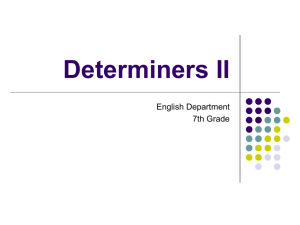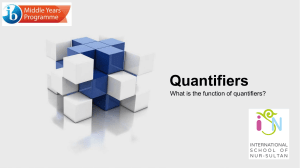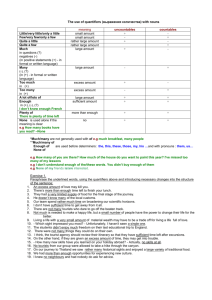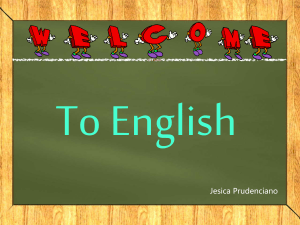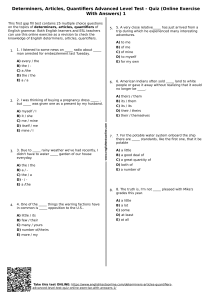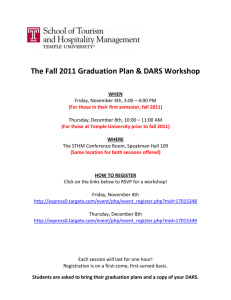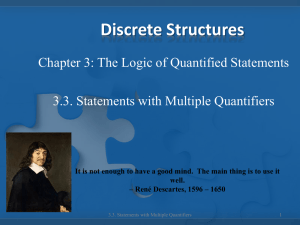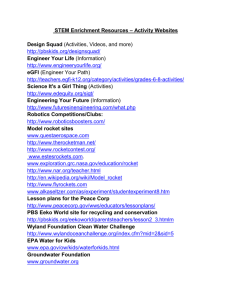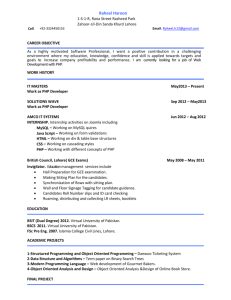Title: English in Use Level 2: Global Pre
advertisement
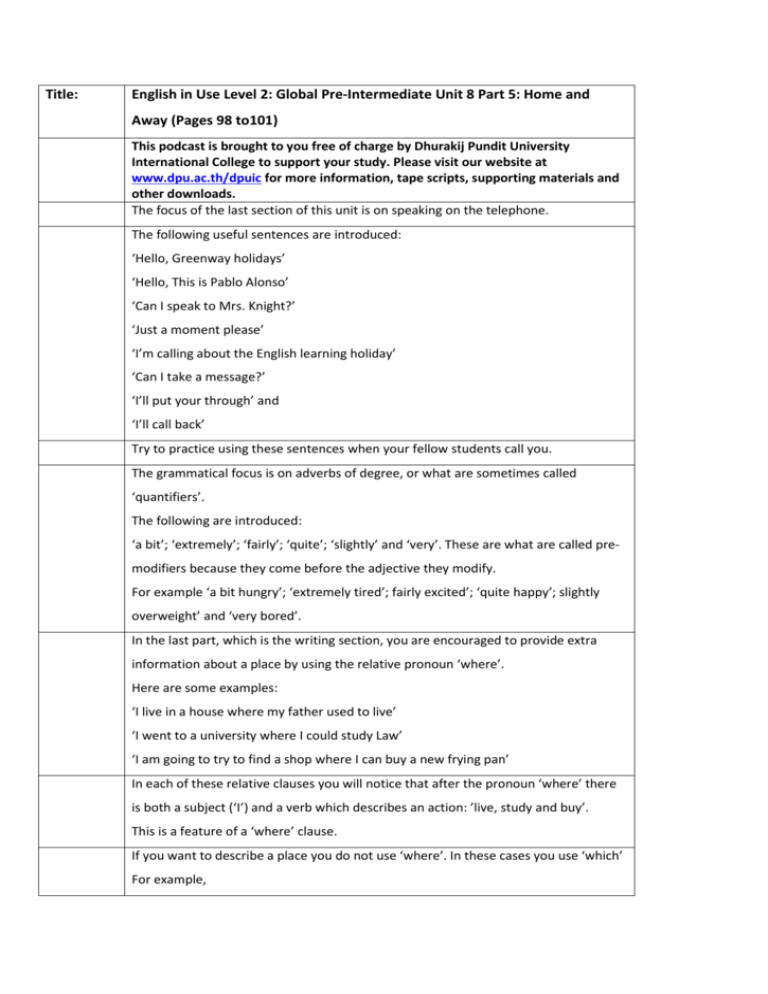
Title: English in Use Level 2: Global Pre-Intermediate Unit 8 Part 5: Home and Away (Pages 98 to101) This podcast is brought to you free of charge by Dhurakij Pundit University International College to support your study. Please visit our website at www.dpu.ac.th/dpuic for more information, tape scripts, supporting materials and other downloads. The focus of the last section of this unit is on speaking on the telephone. The following useful sentences are introduced: ‘Hello, Greenway holidays’ ‘Hello, This is Pablo Alonso’ ‘Can I speak to Mrs. Knight?’ ‘Just a moment please’ ‘I’m calling about the English learning holiday’ ‘Can I take a message?’ ‘I’ll put your through’ and ‘I’ll call back’ Try to practice using these sentences when your fellow students call you. The grammatical focus is on adverbs of degree, or what are sometimes called ‘quantifiers’. The following are introduced: ‘a bit’; ‘extremely’; ‘fairly’; ‘quite’; ‘slightly’ and ‘very’. These are what are called premodifiers because they come before the adjective they modify. For example ‘a bit hungry’; ‘extremely tired’; fairly excited’; ‘quite happy’; slightly overweight’ and ‘very bored’. In the last part, which is the writing section, you are encouraged to provide extra information about a place by using the relative pronoun ‘where’. Here are some examples: ‘I live in a house where my father used to live’ ‘I went to a university where I could study Law’ ‘I am going to try to find a shop where I can buy a new frying pan’ In each of these relative clauses you will notice that after the pronoun ‘where’ there is both a subject (‘I’) and a verb which describes an action: ’live, study and buy’. This is a feature of a ‘where’ clause. If you want to describe a place you do not use ‘where’. In these cases you use ‘which’ For example, ‘I live in a house which is very small’ ‘I study at a university which is very famous’ ‘I work in an office which is very busy’ In the clause that follows ‘which’, there is usually no subject. There is also a discussion of the use of ‘It’ and ‘There’ when they are used at the beginning of a sentence that describes a place. Here are some examples: ‘It’s a small town’ ‘It’s quite interesting’ ‘It’s in the north of the country’ ‘It’s on the coast’ ‘There are lots of nice shops’ ‘There’s a big castle’ ‘There’s nothing to do there’ If you download the text file you can find many links to resources where you can read about and practice these skills. Keep practicing! Links to Other Resources http://www.english-zone.com/verbs/thereisare1.html http://www.usingenglish.com/quizzes/74.html http://a4esl.org/q/h/9807/km-thereisare.html http://www.englishexercises.org/makeagame/viewgame.asp?id=5272 Quantifiers http://www.engvid.com/english-grammar-much-many-a-lot-of-quantifiers/ http://grammar.ccc.commnet.edu/grammar/determiners/determiners.htm http://www.learn4good.com/languages/evrd_grammar/quantifier.htm http://learnenglish.britishcouncil.org/en/english-grammar/determiners-and-quantifiers/quantifiers http://www.myenglishpages.com/site_php_files/grammar-lesson-quantifiers.php http://www.myenglishpages.com/site_php_files/grammar-exercise-quantifiers.php
